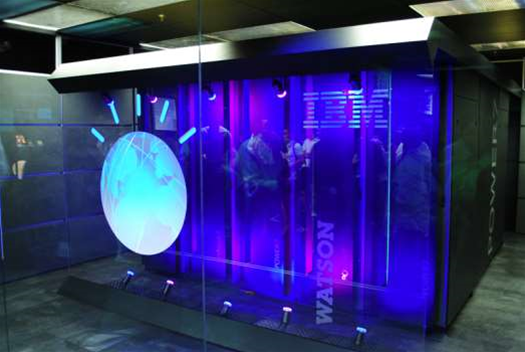Defence is pulling data from tours of duty and weapons systems into what is only the second "secret classified version" of IBM’s Watson cognitive computing platform worldwide.

These are just two of “14 use cases” the department is currently looking to use the platform for to garner deeper insights and improvement information management.
“We said 'let's just buy this thing and work out how that's going to fit into organisation',” ICT strategy realisation branch assistant secretary Matthew Smorhun told the CeBIT conference in Sydney yesterday.
The platform goes beyond an existing internally-built cognitive computing capability that Defence set up to provide business areas with "decision support".
"We needed to go a bit broader with [cognitive computing] ... so what we did was invest in a secret classified version of IBM's Watson platform," he said.
The secret accredited on-premises version - the only one outside of the US - is being built in Defence’s ICT environment on IBM pSeries servers.
Smorhun said the department first put the platform to use on its large repositories of data from tours of duty - information that was first brought back after “deploying into the Middle East many years ago”.
“We’re talking about putting 40 million documents into Watson for this thing, and turning around a response on questions you ask Watson in 16 seconds,” he said.
"And this is on data that no one is ever going to get a hold of in any way, shape or form."
Until now, that repatriated information was likely to end up remaining in the shipping containers it was delivered in on return to Australia.
“Our ability to read it and garner lessons learnt from that information is zero unless you’re really enthusiastic about going through hard drives in shipping containers,” he said.
While the work is continuing, Smorhun said the data would help the department to improve future deployments and that it has already started to return “some quite sensational results”.
“The lessons [will be] of real value when we deploy again, when we do a similar mission, in a similar place, in a similar environment,” he said.
"It's got real strategic value.”
The department is also using Watson to analyse weapons systems on larger military platforms such as aircraft, ships and vehicles.
“In Defence we spend a long time working out how weapons systems, sensor systems and targeting systems all work,” he said.
“When we do that stuff - or when we practice to do that stuff - we take video of it and say how can we do it better.
“We put the video into IBM's Watson, so instead of spending hours calculating trajectories and working out how you might [operate the system] better next time we shoot that little missile, this computer will tell you.”
Smorhun said the proof of concept had already reduced the amount of time spent analysing weapons systems by a factor of three.
Defence first trialled Watson back in 2015 to comb through psychological operations data.


_(33).jpg&h=140&w=231&c=1&s=0)


_(20).jpg&h=140&w=231&c=1&s=0)





 iTnews Executive Retreat - Security Leaders Edition
iTnews Executive Retreat - Security Leaders Edition
 Huntress + Eftsure Virtual Event -Fighting A New Frontier of Cyber-Fraud: How Leaders Can Work Together
Huntress + Eftsure Virtual Event -Fighting A New Frontier of Cyber-Fraud: How Leaders Can Work Together
 iTnews Cloud Covered Breakfast Summit
iTnews Cloud Covered Breakfast Summit
 Melbourne Cloud & Datacenter Convention 2026
Melbourne Cloud & Datacenter Convention 2026
 The 2026 iAwards
The 2026 iAwards












_(1).jpg&h=140&w=231&c=1&s=0)



